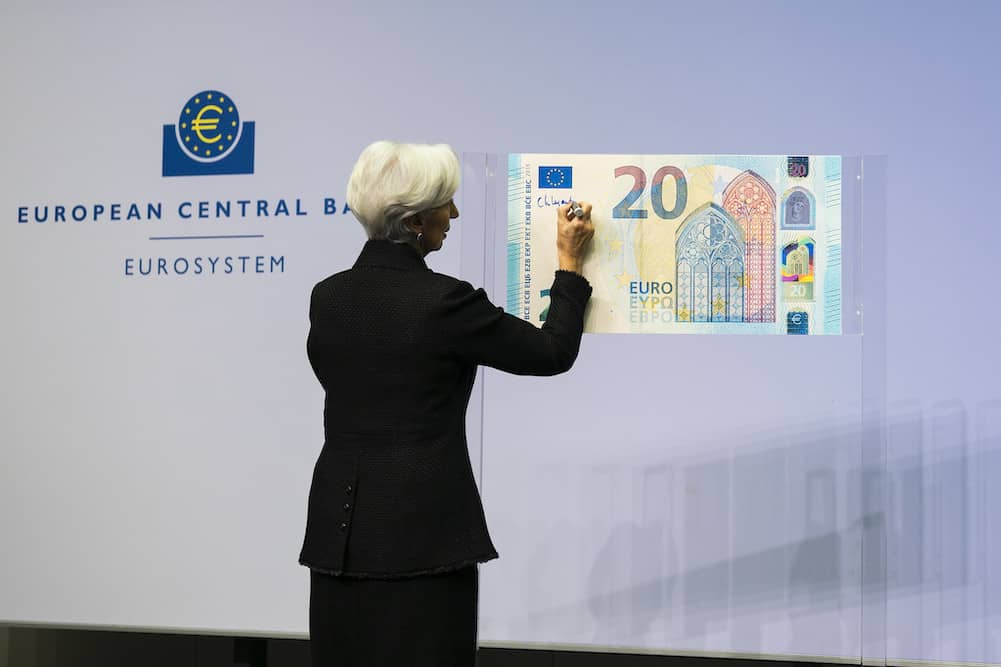GBP/EUR Hits 1.17 After ECB Confirms June Rate Cut is in Play
- Written by: Gary Howes

Above: File image of ECB President Christine Lagarde. Copyrights: Angela Morant/ European Central Bank.
Euro exchange rates were broadly softer after the European Central Bank (ECB) announced interest rates would be kept unchanged but indicated that it was on course to cut them in June, however, Lagarde's caution on the pace of subsequent cuts should limit downside.
The ECB's statement contained the ECB's first reference to rate cuts rates in years:
"If the Governing Council’s updated assessment of the inflation outlook, the dynamics of underlying inflation and the strength of monetary policy transmission were to further increase its confidence that inflation is converging to the target in a sustained manner, it would be appropriate to reduce the current level of monetary policy restriction."
"Straight as a whistle from the ECB; no change, with a clear hint at a June cut if forecasts remain unchanged," says Claus Vistesen, an economist at Pantheon Macroeconomics.
The Pound to Euro exchange rate rose in the minutes following the report to test an interim high at 1.17, the Euro to Dollar exchange rate dipped to its lowest level since February at 1.0721.
"The ECB sends a signal that it will probably cut rates on 6 June (25bp most likely). But makes a point of not providing any real forward guidance beyond that," says David Owen at Saltmarsh Economics.
Compare Currency Exchange Rates
Find out how much you could save on your international transfer
Estimated saving compared to high street banks:
£2,500.00
Free • No obligation • Takes 2 minutes
Heading into the ECB decision markets were well prepared for the central bank to acknowledge it was highly likely it would cut rates in June. But, there were questions as to what would happen after that.
A bearish scenario for the Euro would be mention of the potential for further rate cuts, while the single-currency might have risen if the central bank made it clear it would move slowly.
"There is no precommitment to a rate path... it will depend on the data," said Lagarde in her press conference.
This qualification should limit Euro downside.
"The room for manouver for the ECB to cut rates more significantly beyond the June meeting is limited," says Carsten Brzeski, Global Head of Macro at ING Bank. "Still high services inflation and the recent surge in oil prices, as well as wage developments in Germany, suggest that the risk of inflation reaccelerating is also a reality in the eurozone."




